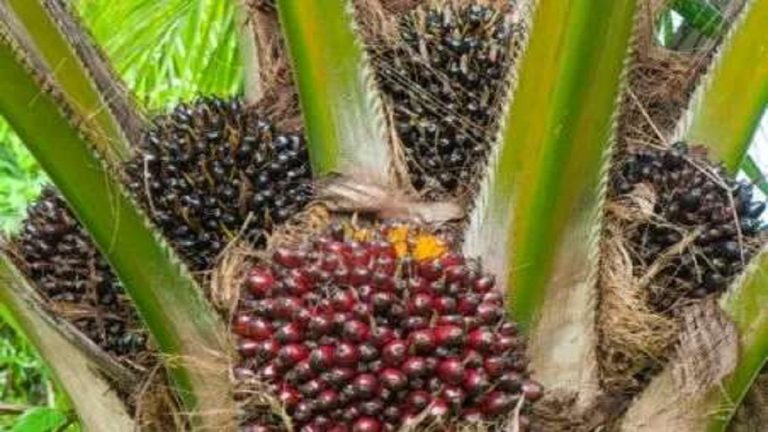
Palm oil
Palm Oil is Quietly Outperforming, by John Dale, Co-founder and Executive Director, Storgit Ltd
Palm Oil is Quietly Outperforming — But Most Nigerians Are looking down on it. While attention has stayed on fintech and digital startups, something else has been quietly delivering outsized returns — Nigeria’s palm oil industry. In just six months, Presco Plc posted ₦89 billion in profit on ₦199 billion in revenue. Okomu Oil is now less than ₦50 billion away from a ₦1 trillion valuation. If you had invested ₦10 million in either stock in January, you’d be sitting on over ₦22 million today.
At the same time, Nigeria still imports over 450,000 metric tons of palm oil annually just to meet demand. Global demand is expected to reach 200 million tons by 2030, powered by food, cosmetics, and biofuels.
This is not a niche story. It’s a real economic signal — one that many have missed.
And on a personal note: I’ve made more money from palm oil arbitrage than any other business I’ve done. Not because it’s flashy. Because it’s stable. It’s in demand. And it works. I flipped funds in big margin like I’m a money doubler because of palm oil.
Here’s what makes it more interesting: The biggest winners in Nigeria’s palm oil boom are not Nigerian. Foreign investors recognized the opportunity in our land, our supply gap, and our export potential — and moved early. They’re winning big.
This isn’t a dig at fintech. Fintech has a role to play. But it must be built on something real. Real infrastructure. Real demand. Real production. And that’s where we still have work to do. Because the next chapter isn’t just about production. It’s about processing — and Nigeria is not ready.
We can’t keep exporting raw potential and importing finished goods. Whether it’s palm oil, cashew, shea, or cocoa, processing is where wealth gets retained. That’s how we capture value, create jobs, grow exports, and secure long-term prosperity. Fintech builds the rails. Processing unlocks the future.
*A barrel of palm oil is now more expensive than a barrel of crude oil*. We make 75–120% on average in palm oil arbitrage trade.
In our trade, we load trucks carrying about ₦700M worth of palm oil from different traders combined every two weeks to the northern states. Buyers from Niger, Chad, Cameroon, and Mali come to pick them up and take them across borders for resale in their countries. Two weeks later, the kegs return empty — ready for another round. And traders go again!
That’s how massive the demand is. Globally, crude palm oil’s export value is even stronger. But here’s the tragedy: Nigeria — once the world’s leader in palm oil — is now dependent on imports. Ironically, the biggest processors and exporters of palm oil in Nigeria are also among the biggest importers of palm oil into the country
Nigeria still brings in over $235M worth of palm oil from Malaysia, $92.7M from India, and $68.2M from Indonesia. Meanwhile, 3.1 million hectares of palm trees lie dead and abandoned — an asset worth over ₦11 trillion ($9.5B). Indonesia, by comparison, has 15.9 million hectares. In 2023 alone, it earned $22.9B from exports, with domestic consumption adding another $16B. Nigeria loses over ₦11 trillion ($9B) every year by abandoning oil palm — more than the country’s entire agricultural budget for the last ten years combined. If Nigeria treated palm oil as seriously as crude oil, these lands would be alive again with palm estates and modern processing hubs. We once held 60% of the world’s share. We lost an industry we once dominated — quietly, without a fight.
And this is not just a palm oil issue. It’s a familiar story.
Groundnuts in Kano — now India leads.
Cocoa estates in Ghana — Europe profits.
Cotton grown in Kaduna — now Asia clothes us.
Shea butter pressed by African women — today is branded abroad for ten times the value.
This is the pattern across Africa: we abandon, others industrialize. We sell raw, they build value. Every year, billions slip out of African hands.
Today, many African governments still lack the will to create enabling environments for investors to encourage planting, processing, and developing supply chains within the continent. They would rather spend $1B prospecting for crude oil and other non-productive expenditures than invest in palm oil, cocoa, cotton, or shea — crops that can produce for generations.
The truth: palm oil, cocoa, shea, cotton, groundnut — some of the highest ROI crops available today — are rotting away.
This is a call to Africans everywhere — at home and in the Diaspora. Don’t wait for government, grants, or subsidies. Gather your families, partners, and networks. Reclaim abandoned lands. Replant dead hectares. Build estates, processing plants, and packaging hubs.
Crude oil runs out. Palm oil renews. Cocoa bears fruit. Shea keeps producing. Cotton keeps growing. If we don’t act, history will remember us as the generation that imported what our ancestors once gave the world.
